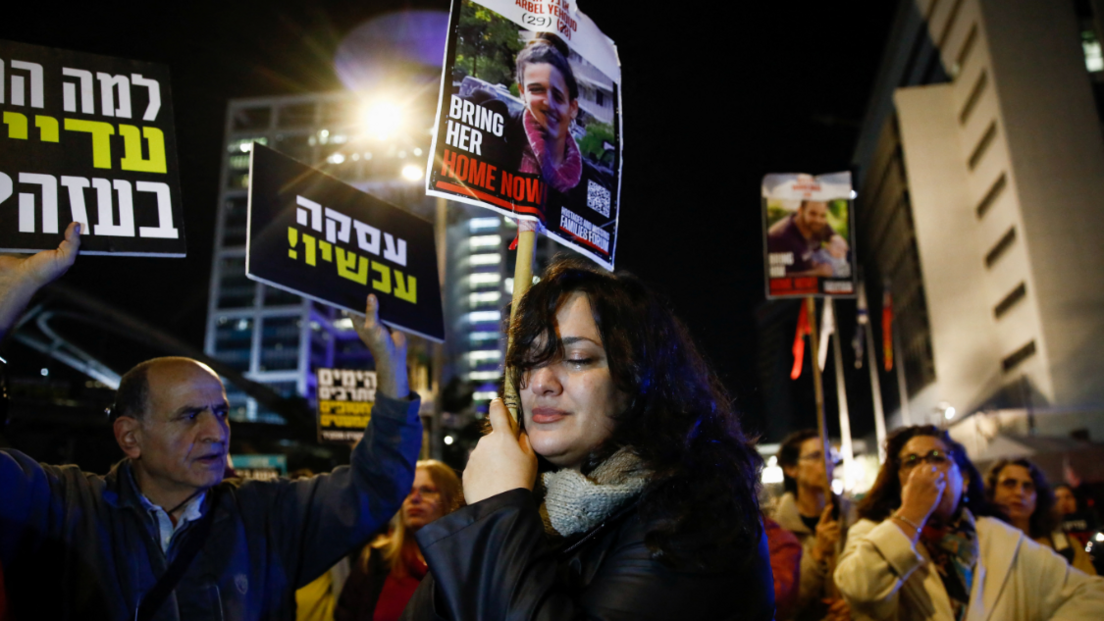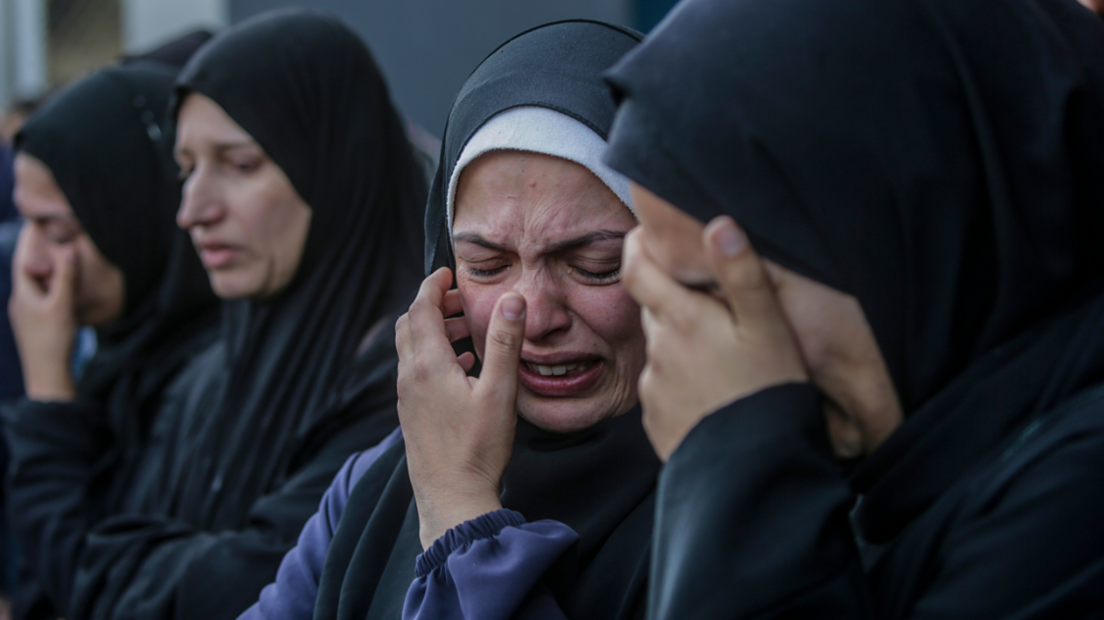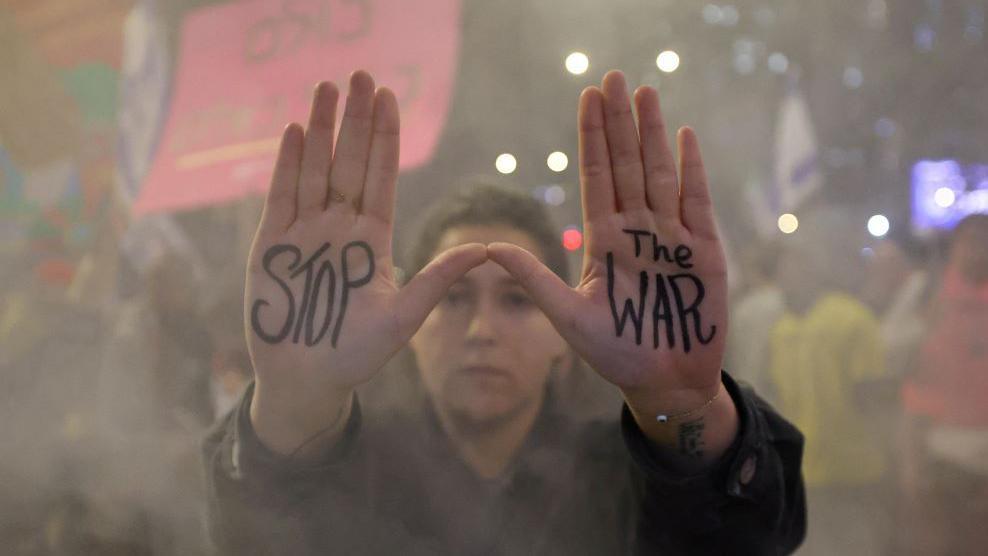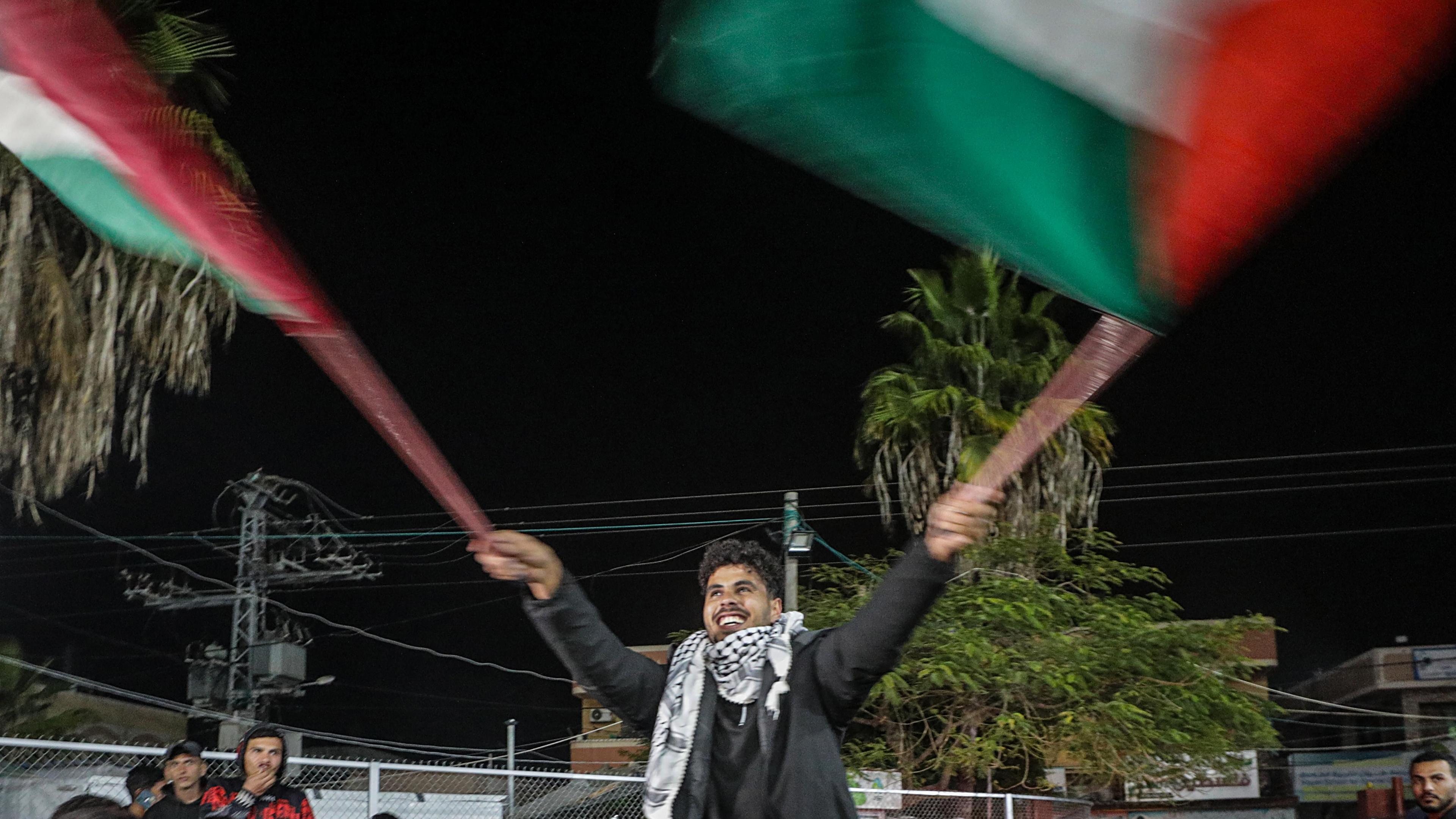Netanyahu says hostage deal now agreed

The first six-week phase of the deal would see 33 Israeli hostages exchanged for Palestinian prisoners
- Published
The office of Israeli Prime Minister Benjamin Netanyahu says a "deal to release the hostages" has been agreed.
Netanyahu had delayed a cabinet vote to approve the Gaza ceasefire deal, due on Thursday, accusing Hamas of seeking last-minute changes to the agreement.
On Friday morning, the prime minister's office said he had been informed by the negotiating team that agreements on the deal had been reached.
It added that the security cabinet would meet later on Friday to ratify the agreement, before approval from the full government is sought. Families of the hostages have been informed.
Representatives of Israel, Hamas, the United States, and Qatar have officially signed the deal in Doha, Israeli media reports.
The ceasefire deal was first announced on Wednesday by mediators the US and Qatar.
Qatari Prime Minister Sheikh Mohammed bin Abdul Rahman Al Thani said the agreement would come into effect on Sunday, pending Israeli cabinet approval.
At the time, Netanyahu said the deal's final details were still being worked on, but he thanked Biden for "promoting" it.
Netanyahu then delayed a cabinet vote to approve the deal on Thursday, accusing Hamas of trying to "extort last minute concessions".
Hamas said it was committed to the deal, but the BBC understands it was trying to add some of its members to the list of Palestinian prisoners that would be released under the deal.
Although Israeli negotiators have agreed to the deal, which follows months of talks, it cannot be implemented until it is approved by the security cabinet and government.
Two hardline right-wing ministers, Itamar Ben Gvir and Bezalel Smotrich, who are both members of the security cabinet and oppose the deal, have said they will resign in protest.
But they've signalled they will not join the opposition - to bring the government down - yet, so long as the war resumes in six weeks time, when phase one of the ceasefire and hostage release deal ends.
US Secretary of State Anthony Blinken has said he expects the ceasefire to start on Sunday as planned with the release of the first three Israeli hostages.
Many Palestinians and Israeli hostages' families celebrated news of the ceasefire after it was first announced.
But there was no let up in the war on the ground in Gaza, with Israeli strikes killing 113 people since the deal was announced, including 28 children, Gaza civil defence spokesman Mahmoud Basal said. More than 260 others have been wounded.
Strikes were carried out on 50 targets in Gaza since the deal's announcement, the Israel Defense Forces and the Israeli Security Agency said on Thursday.

Israeli strikes have continued in Gaza since the ceasefire deal was announced
The first six-week phase of the deal would see 33 hostages - including women, children and elderly people - exchanged for Palestinian prisoners in Israeli jails.
Israeli troops would also withdraw to the east, away from densely populated areas of Gaza.
Displaced Palestinians would be able to start returning to their homes and hundreds of aid lorries would be allowed entry to the territory each day.
Negotiations for the second phase - which should see the remaining hostages released, a full Israeli troop withdrawal and a return to "sustainable calm" - would start on the 16th day.
The third and final stage would involve the return of any remaining hostages' bodies and the reconstruction of Gaza - something which could take years.
Israel launched a campaign to destroy Hamas - which is proscribed as a terrorist organisation by Israel, the US and others - in response to an unprecedented cross-border attack on Israel on 7 October 2023, in which about 1,200 people were killed and 251 others were taken hostage.
More than 46,788 people have been killed in Gaza since then, according to the territory's Hamas-run health ministry.
Most of Gaza's 2.3 million population has also been displaced, there is widespread destruction and there are severe shortages of food, fuel, medicine and shelter, while aid agencies struggle to get help to those in need.
Israel says 94 of the hostages are still being held by Hamas, 34 of whom are presumed dead. There are four Israelis who were abducted before the war, two of whom are dead.
Related topics
- Published19 January

